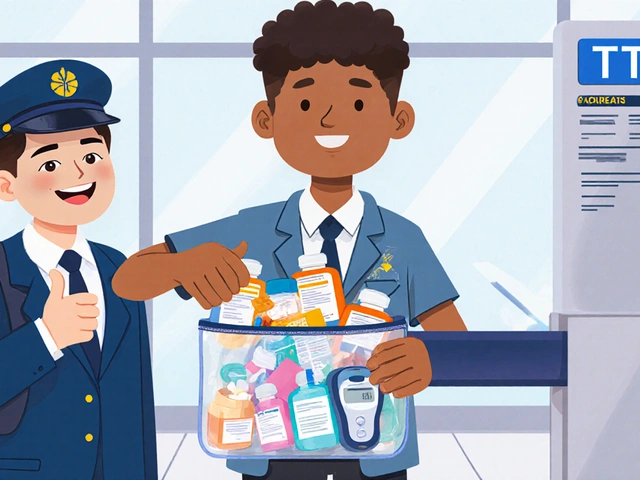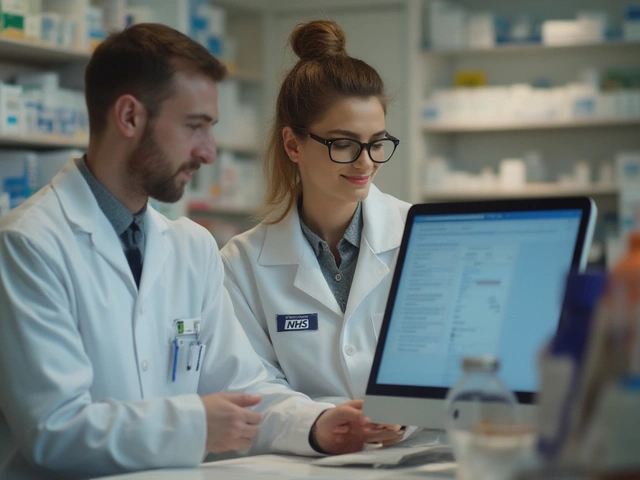
You’ve probably seen bold promises: more energy, stronger immunity, even anti-cancer claims-just add germanium. Sounds tempting. Here’s the straight truth: the science doesn’t back those big benefits, and safety is the sticking point. I live in Birmingham and I still see these capsules on UK sites, but popularity isn’t proof. If you’re here to feel better (not just roll the dice), I’ll show you what germanium is, what the evidence actually says, how to decide safely, and what to use instead if your goal is energy, immunity, or joint comfort.
- TL;DR: There’s no solid human evidence that germanium supplements improve health outcomes; kidney damage is a known risk, especially with inorganic forms.
- “Organic germanium” (Ge‑132) is marketed as safer, but safety isn’t guaranteed; contamination and high-dose harm have been reported.
- Major authorities (NIH Office of Dietary Supplements; US FDA advisories) have warned against using germanium for health.
- If you want results (energy, immunity, joint support), safer, well‑studied options exist and work better.
- UK angle: no authorised health claims for germanium; report adverse events via the MHRA Yellow Card scheme.
What Germanium Is-and What the Evidence Actually Says
Germanium is a naturally occurring element best known in electronics. Unlike iron or iodine, it isn’t an essential nutrient for humans. There’s no recommended daily intake because your body doesn’t need it to function. That alone should set expectations: if a mineral doesn’t fill a biological need, it’s unlikely to be a life‑changing supplement.
Two broad forms show up in products:
- Inorganic germanium (often germanium dioxide). This is the one linked to most toxicity cases.
- “Organic germanium” (usually germanium sesquioxide, Ge‑132). Marketed as cleaner and safer.
Marketers claim germanium boosts oxygen use, modulates the immune system, fights free radicals, eases pain, and supports “detox.” Those ideas date back decades, but they haven’t held up under modern clinical testing. Small, older studies and test‑tube work don’t translate into clear, repeatable benefits in people. No robust, peer‑reviewed trials show germanium improving survival in cancer, preventing infections, or reliably boosting energy.
What about safety? This is where the story turns. Since the late 1980s, doctors reported kidney damage, nerve problems, and deaths linked to germanium-mainly the inorganic type, but high doses, adulteration, or long use are part of the picture. Case reports and reviews in journals such as Kidney International and Clinical Toxicology describe Fanconi syndrome, acute kidney failure, muscle weakness, and neuropathy after weeks to months of use. Some patients needed dialysis; some never recovered kidney function fully.
Health authorities have responded. The US Food and Drug Administration has repeatedly warned against germanium in supplements and placed import alerts on germanium products due to nephrotoxicity. The NIH Office of Dietary Supplements states there are no proven health benefits and significant safety concerns. In the UK, there are no authorised health claims for germanium under GB nutrition and health claims rules. You’ll still find products online, but availability doesn’t equal approval or proof.
Does “organic germanium” make it safe? Not reliably. While toxicity reports are heavier for inorganic forms, “organic” isn’t a force field. Quality varies, contamination happens, doses stack up, and kidneys don’t care about marketing language. If you can’t verify purity and dose-and even if you can-you’re still dealing with a substance with a track record of harm and no proven upside.
Bottom line on evidence: claims of “incredible health benefits” aren’t supported by high‑quality human data, and real risks exist. That’s not me being cynical-that’s me reading the same literature your GP would pull up.

How to Decide-Practical Steps, Safety Checks, and Smart Use
If you clicked hoping to feel better fast, here’s a decision framework that respects your goals and your kidneys.
- Start with the goal, not the hype. Be specific: “I want fewer winter colds,” “I’m dragging by 3 pm,” “My knees ache after runs.” Your goal determines smarter, safer options.
- Reality check the evidence. Ask: Are there large, controlled human trials? Are outcomes meaningful (e.g., fewer infections, less pain, longer life)-not just lab markers? For germanium, the answer is no.
- Weigh risk vs reward. No proven benefit plus documented kidney risk is a poor trade. Imagine the same bet with your car brakes-you’d pass.
- Consider your personal risk factors. Higher risk if you’ve ever had kidney disease, high blood pressure, diabetes, dehydration, recurrent UTIs, or if you use nephrotoxic medicines (e.g., high‑dose NSAIDs, aminoglycosides, cyclosporine), diuretics, or lithium. Older age increases risk too.
- Speak to a clinician before you swallow anything. If you still want to try it, ask your GP or pharmacist. Bring the exact product and label.
Thinking “I might try it anyway”? Use this safety checklist to avoid the common traps:
- Avoid inorganic germanium (germanium dioxide) outright. Most severe cases involve this form.
- Steer clear of blends that hide the actual germanium dose under “proprietary” labels. If you can’t see the milligrams, don’t buy.
- Look for third‑party testing (e.g., independent lab certificates for identity, purity, heavy metals). No certificate? No purchase.
- Avoid products with sweeping disease claims (cancer, COVID‑19, dementia, chronic pain “cures”). They’re illegal claims under UK law and a red flag for poor ethics.
- Don’t stack with other kidney‑stressors: dehydration, high‑dose NSAIDs, creatine loading, or harsh “detox” regimens.
- Pregnant or breastfeeding? Skip it. No reliable safety data.
- Children and teens: not appropriate.
Dosing questions come up a lot. There is no established safe or effective dose of any germanium supplement for any health condition. Historical doses in small studies aren’t a green light. If someone is quoting a number, ask for the exact trial and outcome-it usually evaporates on inspection.
Watch for these early signs of kidney trouble-if they appear during or after use, stop immediately and seek medical care:
- New swelling in ankles or around eyes
- Foamy urine, reduced urine output, or dark urine
- Unusual fatigue, nausea, metallic taste
- Muscle weakness, tingling in hands/feet
UK specifics worth knowing:
- Supplements are regulated as foods. Germanium has no authorised health claims in Great Britain.
- Adverse effects? Report to the MHRA Yellow Card scheme-this helps protect others.
- Imported products can bypass usual checks. If the label looks US‑style or makes bold disease claims, be extra cautious.
How to talk to your GP without getting brushed off:
- Lead with your goal: “I’m catching every cold. I want fewer sick days.”
- Share what you’ve read: “I saw germanium touted online. Is there a safer way to get the same result?”
- Bring your meds/supplements list. Interactions change the plan.
- Ask for specifics: “If fatigue might be iron or B12, can we check levels?”
One more practical angle I’ve seen in Birmingham clinics: most people chasing “detox” or “oxygenation” actually need better sleep, iron or B12 checks, hydration, and consistent movement. Not sexy, wildly effective.

If You’re After Results, Use These Proven Alternatives (Plus FAQs)
Let’s swap hype for outcomes. Pick your goal and choose options with real‑world backing.
Goal: fewer colds and milder infections
- Vaccinations up to date (flu, COVID‑19). This is the biggest swing factor for respiratory illness severity.
- Vitamin D if deficient: Ask for a test; supplementation helps if you’re low, especially through UK winters.
- Sleep 7-9 hours and aim for consistent bedtimes. Short sleep raises infection risk.
- Zinc lozenges at the first sign of a cold may shorten duration a bit; don’t exceed safe daily limits and avoid long‑term high doses.
- Hand hygiene and room ventilation still matter far more than any capsule.
Goal: reliable energy
- Rule out fixable causes: iron deficiency, B12 deficiency, thyroid issues, sleep apnea. A simple blood workup beats guesswork.
- Creatine monohydrate (3-5 g/day) supports short‑burst performance and may help perceived energy during training days.
- For mental alertness: modest caffeine (coffee/tea) plus hydration. Pair caffeine with protein or fibre to avoid crashes.
- Carb timing for workouts: a banana or oats 60-90 minutes before exercise often does more for “zip” than any exotic mineral.
Goal: joint comfort and recovery
- Turmeric/curcumin (with piperine or a bioavailable form) shows modest help for knee pain in several trials.
- Omega‑3s (EPA/DHA) can support joint comfort, especially if your diet is light on oily fish.
- Strength training and mobility work beat pills long‑term. Start with two full‑body sessions weekly.
- Weight management helps knees more than any supplement. Even 5% loss can reduce pain.
Goal: “antioxidant” support
- Eat colour: berries, leafy greens, tomatoes, peppers. Whole foods beat isolated antioxidants in outcome studies.
- Vitamin C from food (or modest supplements if intake is low) is safe and inexpensive.
- Don’t megadose antioxidants around training; it can blunt adaptations.
Decision quick-guide
- If your goal has safe, proven options-use those before considering experimental or risky ones.
- No clear benefit + known harm = skip it. Germanium fits here.
- If you can’t verify purity and dose, walk away.
Red flags on product pages
- “Cures cancer,” “treats COVID,” “detoxes heavy metals overnight.” Illegal claims.
- Before/after photos with dramatic body changes unrelated to the ingredient.
- No ingredient amounts, or “proprietary blends.”
- Testimonials in place of clinical data. Stories aren’t studies.
Mini‑FAQ
Is germanium natural? It exists in nature, yes. That doesn’t make it safe or needed as a supplement. Hemlock is natural too. Your body has no requirement for germanium.
Is “organic germanium” (Ge‑132) safe? Safer than inorganic isn’t the same as safe. There’s no established therapeutic dose, and kidney harm has been reported, particularly with long‑term or high‑dose use and with adulterated products.
Can germanium treat cancer? No high‑quality human trials show improved survival or response. Major cancer guidelines do not recommend germanium. If you are in treatment, tell your oncology team about all supplements-some can interact with chemo or trials.
What dose is safe? There is no confirmed safe or effective dose. If a site quotes one, ask for the trial. You won’t find robust human data with meaningful outcomes.
Is germanium allowed in UK supplements? Products can appear online, but there are no authorised health claims for germanium in Great Britain. Availability doesn’t equal endorsement. If you have a reaction, report it via the MHRA Yellow Card scheme.
Can I use it topically? Oral use is where most harm is documented. Topical products are uncommon and not well studied; stick with proven skincare actives unless advised by a clinician.
What I’d do if this were my body
My wife, Amelia, once sent me a viral thread selling “oxygen‑boosting” germanium drops. We both like feeling sharp-work, gym, the usual Birmingham bustle-but we like working kidneys more. We chose sleep, vitamin D in winter after a quick test, and a simple strength plan. Energy lifted, and we didn’t need to play chemist with our nephrons.
Next steps
- Pick your top goal (immunity, energy, joints) and choose one proven action from the lists above. Start it today.
- If you’re still tempted by germanium supplement marketing, pause and book a 10‑minute chat with your GP or pharmacist. Bring the label.
- If you’ve used germanium and feel “off” (swelling, less urine, fatigue), stop and seek medical advice. Report issues via the MHRA Yellow Card scheme.
Troubleshooting by persona
- Busy parent with winter bugs in the house: Prioritise sleep schedule, vitamin D if low, and flu shots for the household. Keep zinc lozenges for first symptoms.
- Weekend athlete with sore knees: Turmeric/curcumin, two strength sessions/week, and technique tweaks. Save your money on exotic minerals.
- Office worker hitting the 3 pm slump: Check ferritin/B12 once, hydrate, protein‑forward lunch, and a 10‑minute brisk walk at 2:30 pm. It beats any capsule.
- Person with kidney history or on multiple meds: Avoid germanium entirely. Book a medication review; adjust NSAID use and ensure regular kidney function checks.
Credibility notes
For medical decisions, I lean on primary sources: NIH Office of Dietary Supplements fact sheets on germanium (which find no proven benefits and warn of harm), FDA consumer warnings and import alerts on germanium products dating back decades, and case reports/series in peer‑reviewed journals (e.g., Kidney International, Clinical Toxicology) documenting kidney failure and neuropathy after germanium use. If a product page cherry‑picks small or outdated studies, ask: did people actually get sick less, live longer, or hurt less? If not, it’s not the hill to stake your health on.
If you came here expecting a miracle mineral and you’re leaving with a plan that actually works-good. Health is the long game, not the loudest headline.
14 Comments
Write a comment
More Articles

Buy Generic Allegra (Fexofenadine) Online Cheap in the UK: Safe 2025 Guide
Want cheap generic Allegra online? Here’s a UK-safe way to get fexofenadine for less in 2025-prices, legit pharmacies, risks, and smarter alternatives.

TSA Guidelines for Flying with Prescription Medications: What You Need to Know in 2025
Learn exactly how to fly with prescription medications in 2025 under TSA rules - including what’s allowed, what gets confiscated, and how to avoid delays at security. Essential for travelers with insulin, CBD, ADHD meds, or other prescriptions.

Shawn Simms
September 2, 2025 AT 13:20Germanium is not an essential nutrient for human physiology, which means the body has no established requirement for it.
Consequently, supplement manufacturers cannot cite a Recommended Dietary Allowance, and any purported health benefit remains anecdotal.
Regulatory agencies such as the FDA and the UK MHRA have issued warnings about its nephrotoxic potential, especially in inorganic forms.
Therefore, introducing germanium into a supplementation regimen should be considered only after a thorough risk‑benefit analysis with a qualified healthcare professional.